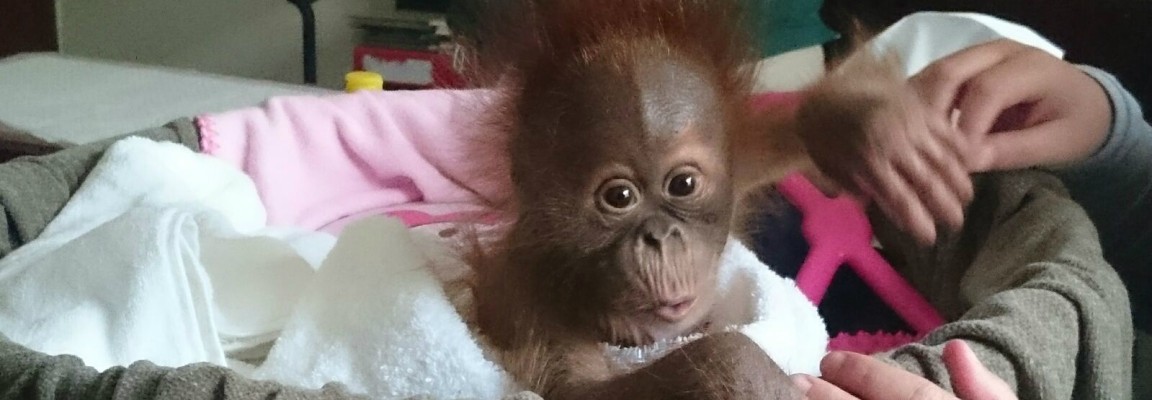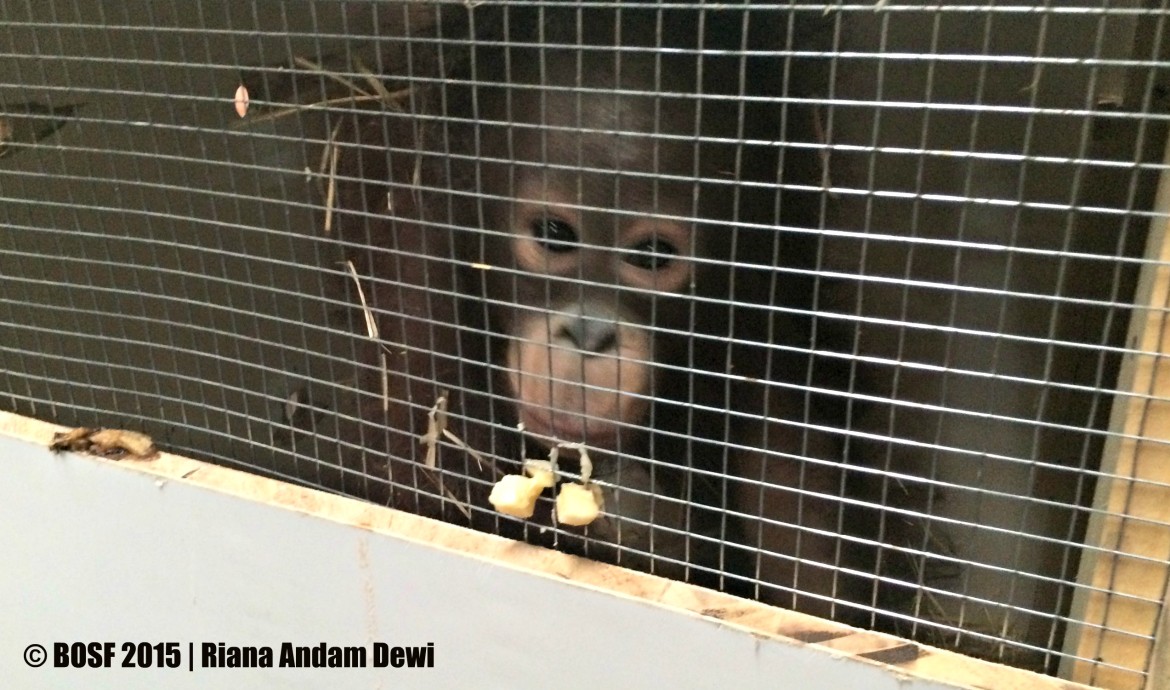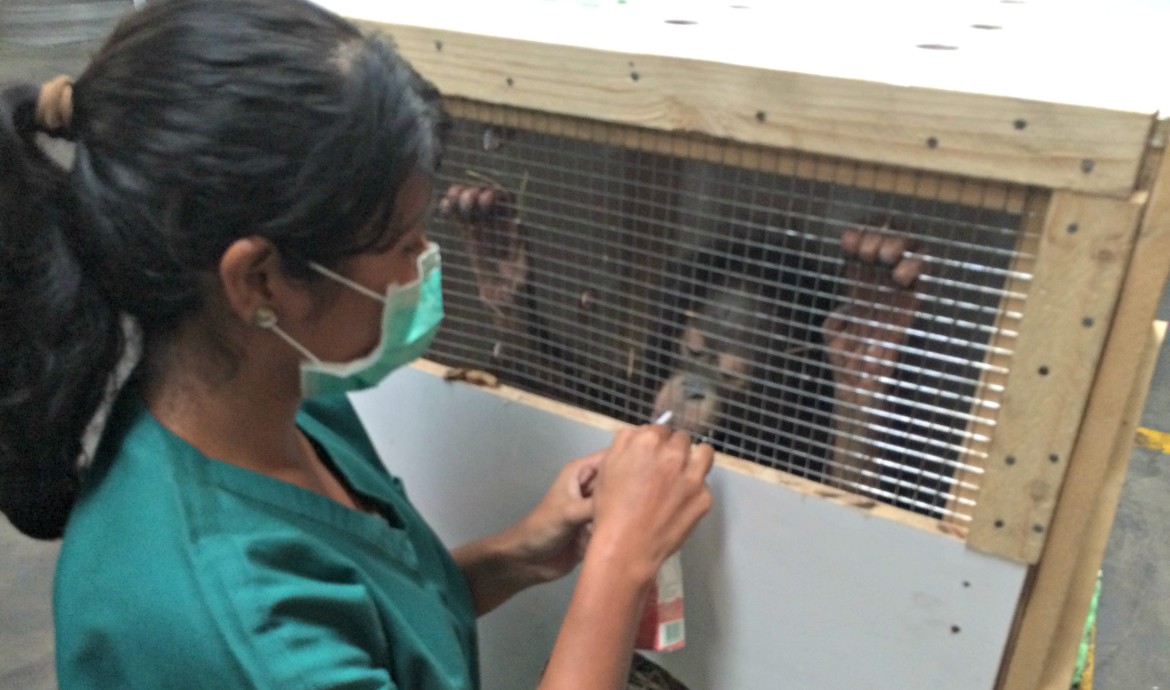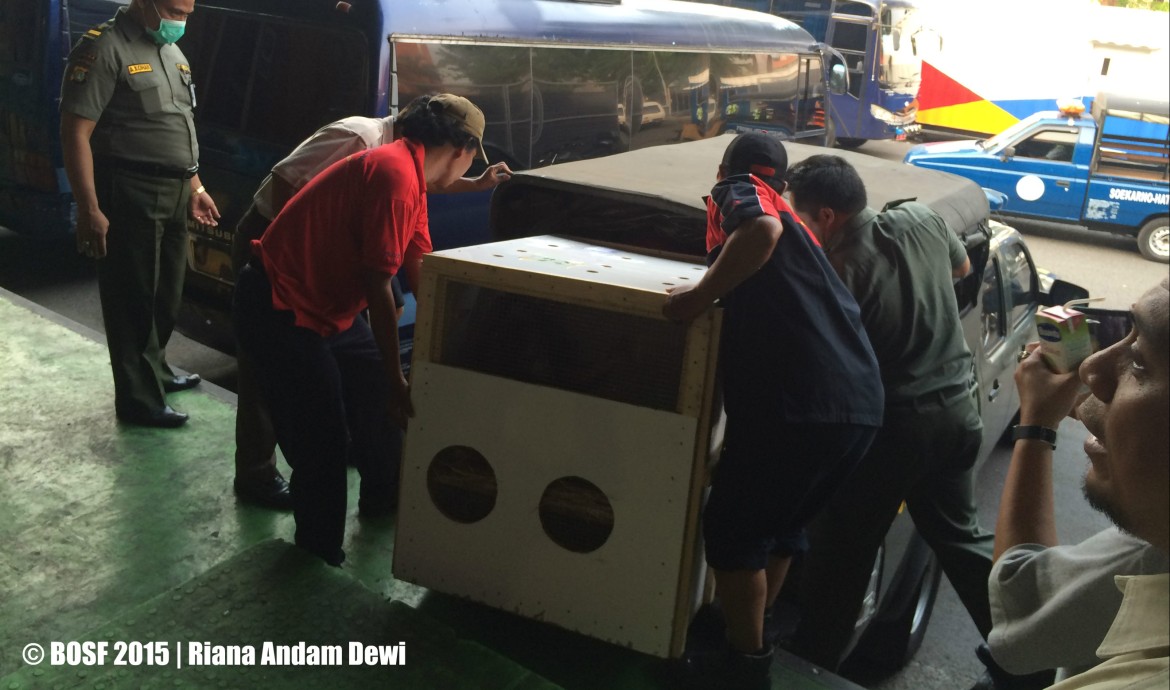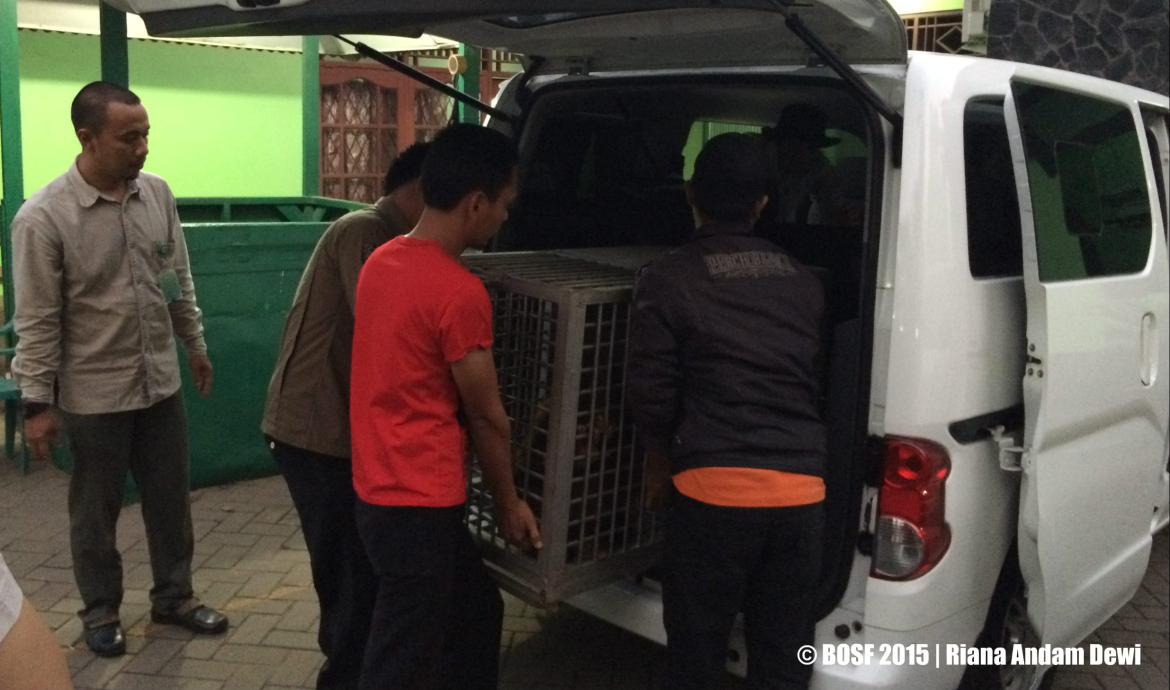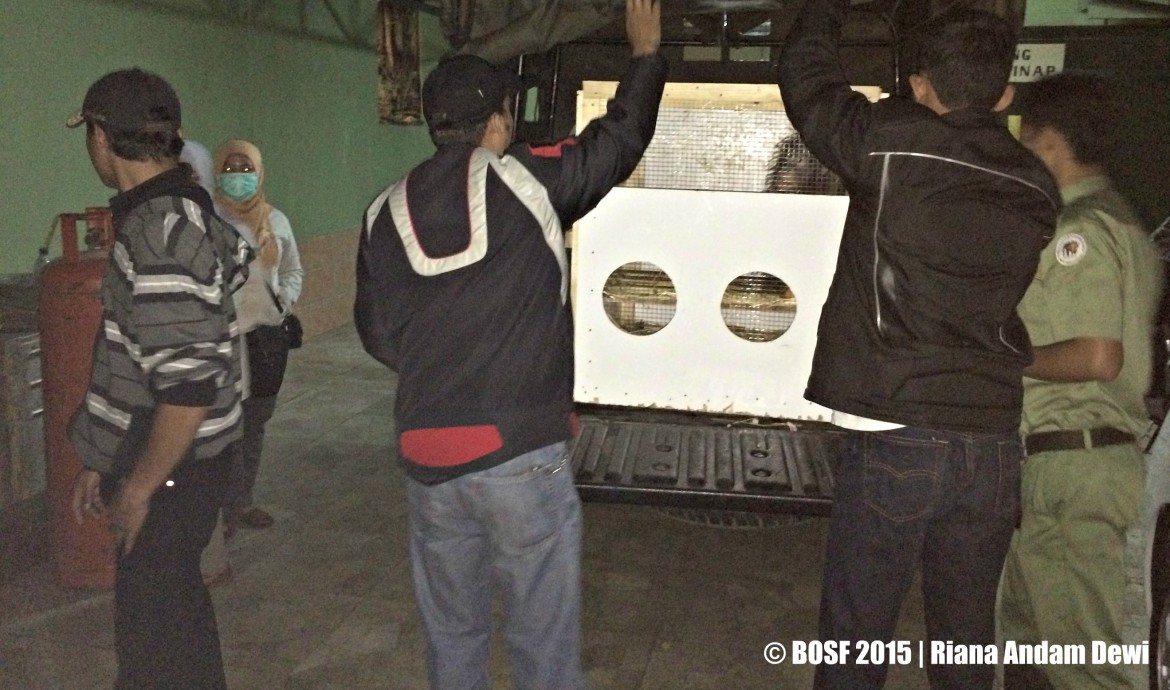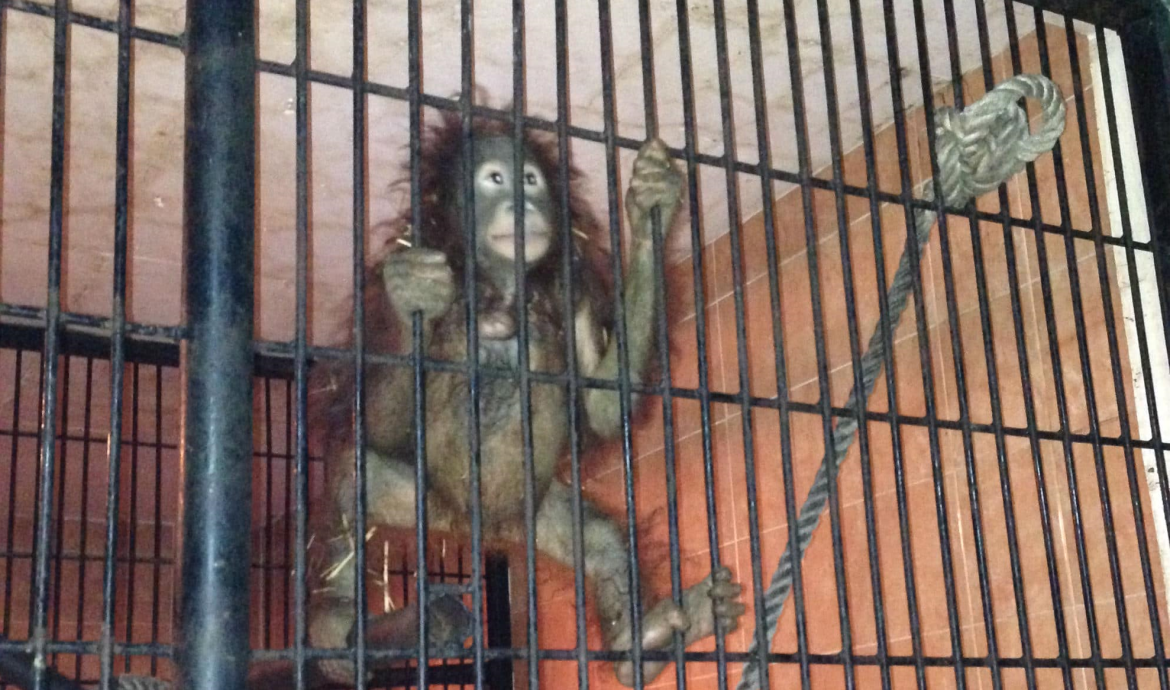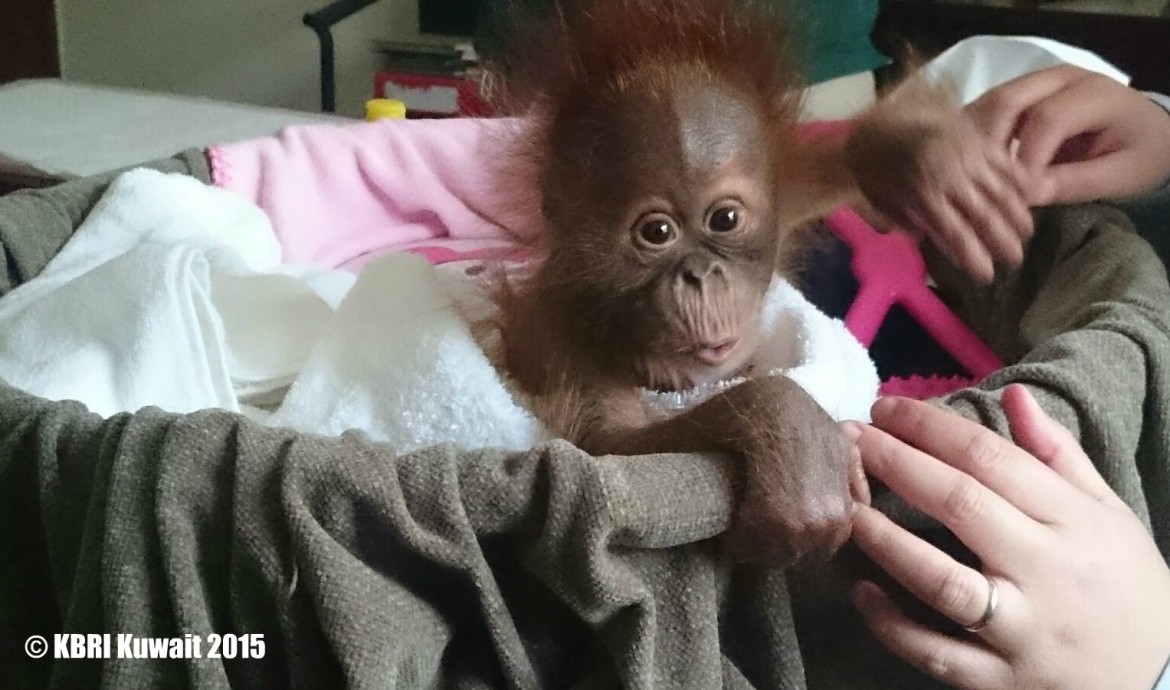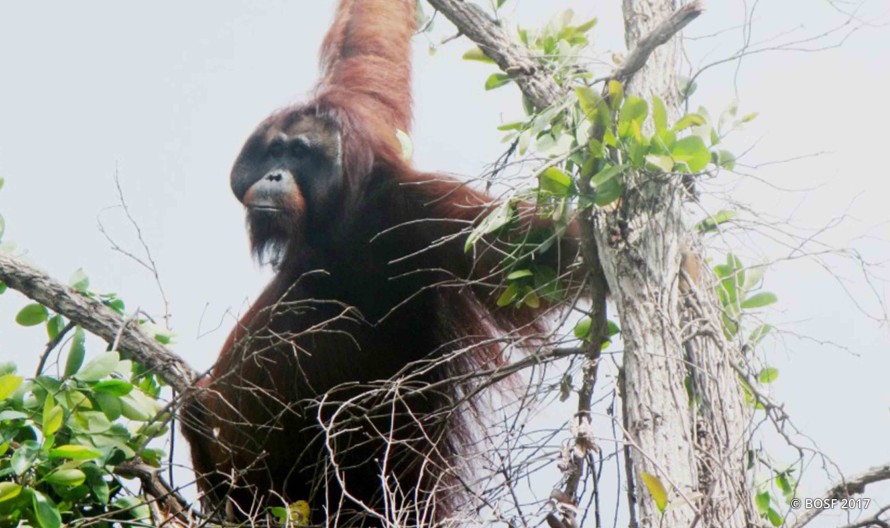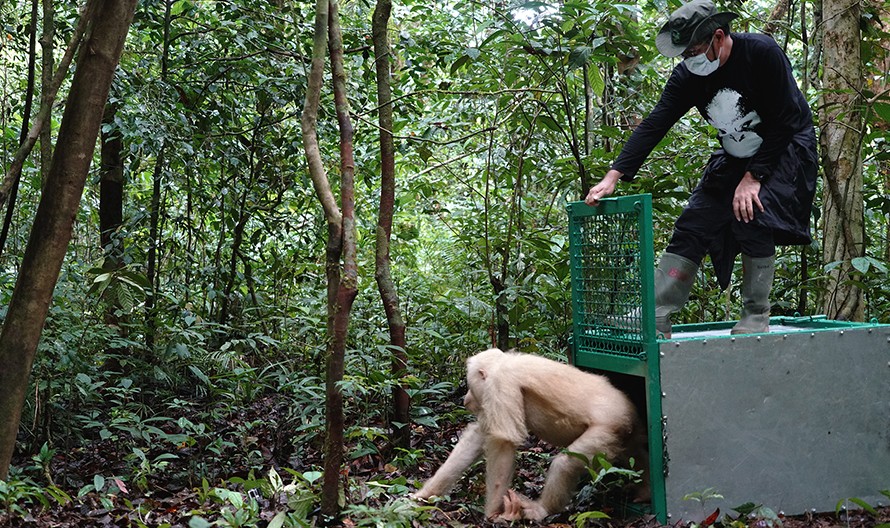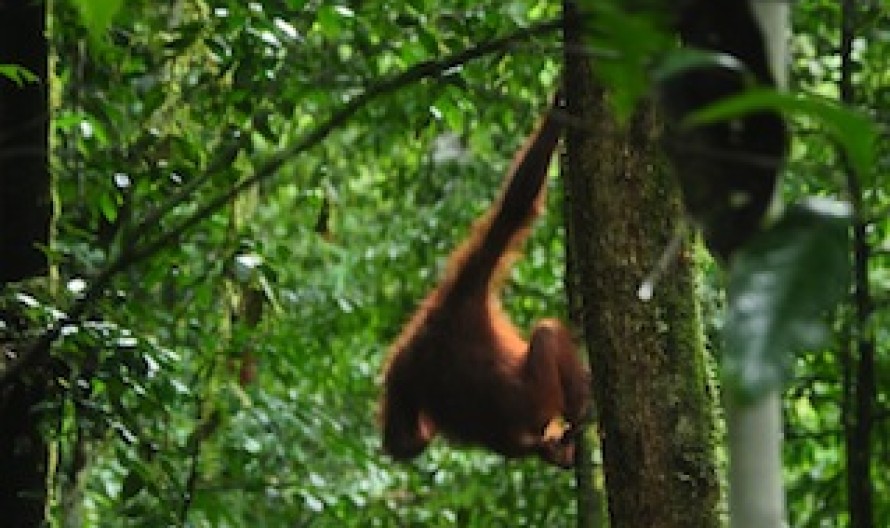The Indonesian Government represented by the Directorate General of Natural Resources and Ecosystem Conservation of the Ministry of Environment and Forestry and the Indonesian Embassy in Kuwait City in collaboration with the BOS Foundation has successfully repatriated a 2-year old baby orangutan.
Bogor, 14 September 2015. In July 2015, the Indonesian Embassy in Kuwait received information from the Kuwait International Airport of an intercepted attempt to illegally smuggle two baby orangutans into Kuwait from Jakarta. The Indonesian Embassy quickly responded by coordinating with the Ministry of Environment and Forestry, whilst the Kuwait airport authority placed the young orangutans under the temporary care of the Kuwait Zoo.
An examination on the two revealed that they are both female. One is estimated at 2 years old, while the other is only 6 months old. The Kuwait Zoo then requested the Indonesian government to facilitate repatriation of both orangutans at the earliest possible convenience for a better chance of future release back in the true habitat.
The Indonesian government through the Directorate General of Natural Resources and Ecosystem Conservation of the Ministry of Environment and Forestry in collaboration with the Indonesian Embassy in Kuwait City and the BOS Foundation, transported the older baby orangutan aged 2 years, back to Indonesia on the 13 September 2015 by Kuwait Airways (KU415). The flight landed in Soekarno-Hatta International Airport, Tangerang on 14 September 2015, 15:50 local time.
For this repatriation the BOS Foundation supported the government in funding the transportation, providing advice and the necessary Standard Operatiing Procedures to ensure the safe transportation of the baby orangutan during transit and also on-arrival care by an experienced BOS Foundation veterinarian at Jakarta airport.
As soon as the transport cage carrying Moza, the name of the baby orangutan, arrived in the cargo terminal area, BOS Foundation veterinarian, Meryl Yemima Gerhanauli conducted an initial examination and found that Moza was in a very good health after her 10-hour flight.
After she was fed, she was transferred to the quarantine facility in Taman Safari Indonesia, Cisarua, Bogor.
Meanwhile, in early 2015, the Quarantine Agency of the Ministry of Agriculture also succeded in intercepting an attempt to illegally export one young male orangutan at the Soekarno-Hatta international Airport, Tangerang, shortly prior to being transported on a Kuwait Air flight number KU416. This illegal attempt at shipping wild animals from Indonesia to Kuwait is believed to have been conducted by the same network as the current case. The confiscated orangutan from that failed attempt was entrusted to the Center for Animal Rescue (PPS) in Tegal Alur, Jakarta, as evidence. The orangutan, whose name is Junior was to join Moza in Taman Safari Indonesia to also complete his quarantine period.
After a brief stop in PPS Tegal Alur to collect Junior, both orangutans were taken to Taman Safari Indonesia, escorted by a joint team from the Ministry of Environment and Forestry and the BOS Foundation. The group arrived in Taman Safari Indonesia around 11.30 pm local time and both orangutans were transferred to quarantine enclosures.
Both orangutan babies commenced a quarantine process consisting a thorough health check – and for Moza, a DNA test - to determine her subspecies and the therefore the most appropriate rehabilitation center to accommodate her. A DNA test for Junior had previously been conducted and revealed his origin as the Bornean sub-species of Pongo pygmaeus wurmbii. The rehabilitation process is deemed highly important for these two to give them the best chance of reintroduction to their natural habitat in the forest in the future.
While in Kuwait, the 6 month old orangutan baby is still awaiting for repatriation. The reason for the additional wait is that she is still too young to travel alone and requires a veterinarian to actively take care of her during the flight. The BOS Foundation together with related parties are currently trying to establish a detailed plan to safely ensure various aspects of animal welfare will be met during her future transport.
The General Director of Natural Resources and Ecosystem Conservation (Dirjen KSDAE) of the Ministry of Environment and Forestry, Dr Ir Tachrir Fathoni, says, “The Indonesian government is currently collecting data on the number of orangutans in foreign countries to be immediately repatriated. In accordance to international regulations, illegally smuggled wild-born orangutans abroad must return to Indonesia. While Indonesian regulations state that orangutans should be released into their natural habitat in the forest whenever possible. Therefore the Ministry of Environment and Forestry, in this case, the Directorate of Natural Resources and Ecosystem, invited the BOS Foundation to help with the repatriation process of these two orangutans currently being cared for at the Kuwait Zoo and if DNA tests conclude they are Central or Eastern Bornean subspecies, they will be placed in BOS Foundation’s orangutan rehabilitation centers."


